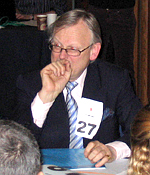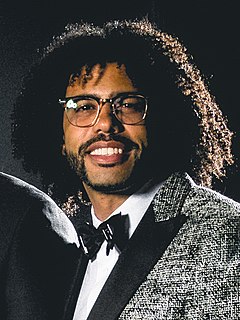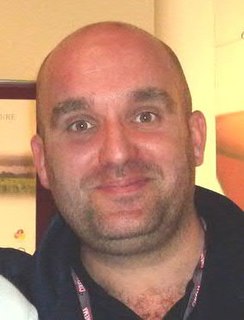A Quote by Elizabeth Kolbert
We're talking really huge global-scale change, and I did not feel that I had the prescription for that kind of action, so I'm going to leave it to the reader.
Related Quotes
Many scales of climate change are in fact natural, from the slow tectonic scale, to the fast changes embedded within glacial and interglacial times, to the even more dramatic changes that characterize a switch from glacial to interglacial. So why worry about global warming, which is just one more scale of climate change? The problem is that global warming is essentially off the scale of normal in two ways: the rate at which this climate change is taking place, and how different the "new" climate is compared to what came before.
I've done all sorts of different kinds of action. We did a thing in 'Blood Diamond,' the attack on Freetown, where I carefully staged the action but did not show the camera operators what we were going to film - so it has the feel of documentary, trying to capture something, and that gave it a whole different feel.
The term revolution means: a sudden, radical, and complete change from the way things are normally done. I love that definition because I really feel that in order for us to start walking in the kind of love that Christ commanded us to - the "love your neighbor as yourself" kind - it's going to take a radical change in our current behavior. The church has become passive and selfish and it's going to take a revolution to get us back to the place where we are not just talking the talk, but walking in a love that shows the world Christ's love.
All the things that we've done as a species have had a limited scope. We're talking about melting the ice caps, raising the level of the seas dramatically, changing the distribution of every other species on Earth, perhaps wiping out one-third or half of them. The changes at work are geologic in scale. The level of change required to deal with it is enormous, too. It will require change in every country. It will require a degree of global cooperation that we haven't seen before.
I think the challenge of climate change in particular is the challenge for us to create and produce new norms for a new kind of world. And that's why I think as important as the issue of climate change is, it's even more important than it seems because if we can't evolve very quickly, new norms to deal with issues like climate change, we're not going to be able to survive in the kind of world we've created. So I think, really, the whole nature of democracy, of governance, of global community and of solving the kinds of problems of the 21st Century are really at stake.
Oftentimes, it feels like we spend so much of our life waiting to make art, waiting for somebody to let us do something. You don't really have to do that. You can make it all the time. And 99 percent of the time, it's not going to be a big deal on a global scale. But 100 percent of the time, it's going to make you feel amazing.
When CNN launched in the early 1980s, everybody said: A 24-hour news network won't work. They launched, they did ok, CNN went almost bankrupt because of the risks they had taken, they got bailed out, and 25 years later CNN is a huge global brand. I think the same is going to happen in digital. If you look at the younger generation, there is a huge consumption of digital media and almost no consumption of print or traditional television. Eventually money will follow that. It is just a question of which companies win, how long it takes to get there and what kind of model you need to apply.

































